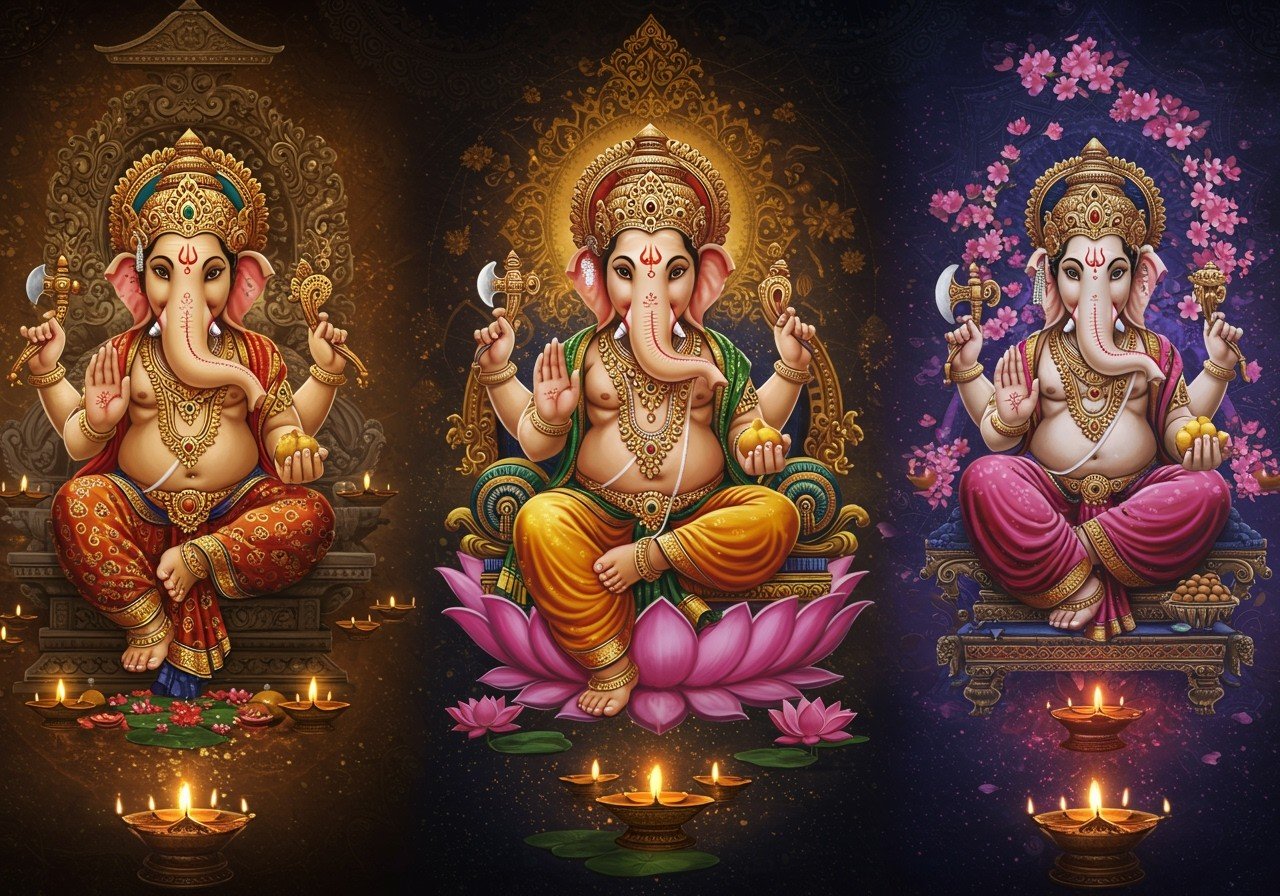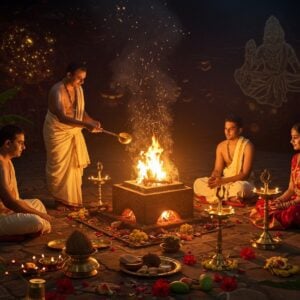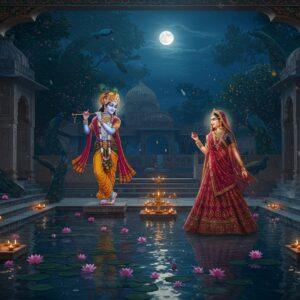
Hindu deities hold a vital place in cultural traditions around the world. Hinduism, with its rich stories and symbols, has spread beyond India through trade, migration, and cultural exchange. This spread has led to unique interpretations of Hindu gods and goddesses in different places. Understanding these adaptations offers a glimpse into how Hindu deities are seen and worshipped in cultures like Japan.
Historical Context of Hindu Deities in Japan
Hindu Deities’ Journey to Japan
The introduction of Hindu deities to Japan is rooted in historical interactions between India and Japan. Buddhist monks and scholars played a key role in bringing Hindu iconography to Japan, primarily during the Asuka and Nara periods (roughly 6th-8th centuries CE). The Silk Road and sea trade routes facilitated this cultural exchange, acting as bridges between the two civilizations. Consequently, Hindu deities found their way into Japanese Buddhist and Shinto traditions, leading to unique syncretic blends of belief systems.
Hindu Deities in Japanese Buddhism
In Japan, a fascinating fusion unfolds as Hindu deities become integrated into Japanese Buddhism. Brahma, known as Bonten, and Indra, called Taishakuten, are prominent examples of this integration. Their roles, while sometimes adapted, remain significant within Buddhist cosmology and rituals. These deities are particularly cherished within esoteric Buddhist sects like Shingon and Tendai Buddhism. Their presence in temples, festivals, and iconography brings a sense of protection and guidance to devotees.
Shintoism and Hindu Deities
Shintoism, Japan’s indigenous faith, also exhibits a remarkable openness to incorporating Hindu deities. This syncretic tendency allows for the seamless integration of foreign divinities into the Shinto pantheon. Saraswati, the goddess of knowledge and arts, becomes Benzaiten in Japan, revered for similar attributes of wisdom, fortune, and artistic expression. Ganesha transforms into Kangiten, a deity who removes obstacles and brings bliss. These deities enrich Shinto practices, infusing them with themes of prosperity, creativity, and good fortune. Their influence is visible in various cultural rituals and artistic expressions, symbolizing a spiritual connection between Japan and India.
Cultural Depictions and Artistic Representations
The artistic representations of Hindu deities in Japan are a testament to the cultural exchange. Japanese aesthetics infuse these divine figures with unique characteristics. Attire, iconography, and attributes may be adapted to suit Japanese artistic sensibilities, yet the core essence of the deities remains recognizable. Sculptures and paintings capture the serene beauty of Kichijoten (Lakshmi) and the wisdom of Benzaiten (Saraswati), showcasing the elegance of Japanese art while honoring the rich heritage of these deities.
Modern Worship and Influence
In contemporary Japan, the reverence for Hindu deities continues to thrive. They find a place not only in traditional Buddhist and Shinto practices but also in new religious movements and even popular culture. Festivals and rituals celebrating these deities offer spiritual solace and cultural richness. Globalization further enhances this cultural exchange, fostering greater awareness and appreciation for the interconnectedness of spiritual traditions. The enduring presence of Hindu deities in Japan showcases their timeless appeal and ability to transcend geographical boundaries.
How Poojn.in Helps You Connect with Hindu Deities Across Cultures
Poojn.in offers authentic puja items and resources to support your worship of Hindu deities, respecting diverse cultural traditions. Our extensive collection includes:
- Regional variations of deity idols and images, reflecting local artistic styles and interpretations. We ensure accuracy and cultural sensitivity in representing these divine forms.
- Puja items specific to different cultural practices, ensuring you have the appropriate tools for your chosen tradition. Our collection includes specialized items for various Hindu denominations and regional customs.
- Sacred texts and prayer materials in multiple Indian languages, catering to diverse linguistic backgrounds and promoting accessibility to spiritual knowledge.
- Traditional worship items from various states and communities across India, offering a wide range of authentic products for your spiritual practices.
Featured Products for Multi-Cultural Worship:
- Brass Ganesh idols in both North and South Indian styles, offering choices that align with specific regional iconography.
- Regional-specific puja thalis and accessories, ensuring authenticity and completeness in your worship rituals. Explore our Puja Thalis collection.
- Specialized worship items for festivals celebrated differently across India, facilitating participation in diverse cultural expressions of faith. Learn more about Ganesh Chaturthi.
- Complete puja kits with instructions in multiple languages, providing convenience and guidance for practitioners of all backgrounds.
At Poojn.in, we recognize the diversity of Hindu deity worship across regions and cultures. Our dedicated team carefully curates products that respect these diverse traditions. Whether you follow North Indian, South Indian, or other regional worship styles, you will find the perfect items to meet your spiritual needs.
Visit Poojn.in’s Hindu Deities section to explore our complete collection of culturally specific worship items and enrich your understanding of regional practices.
*Note: Product availability may vary. Please check the website for current stock.
A Harmonious Blend of Traditions
The journey of Hindu deities across cultures, particularly in Japan, exemplifies the beauty of spiritual and cultural exchange. As these divine figures find new homes in Buddhism and Shintoism, they continue to inspire and guide. This harmonious blend of traditions demonstrates the universal appeal of wisdom, prosperity, and protection embodied by these deities. Their presence in art, rituals, and modern worship reflects a deep respect for shared heritage. This cultural tapestry enriches spiritual practices and strengthens intercultural bonds. Embracing these deities in their diverse forms reminds us of the unifying power of shared beliefs and the endless possibilities of cultural exchange.
FAQs on Hindu Deities Across Cultures: How Interpretations Vary
What are some prominent examples of Hindu deities in Japan?
In Japan, several Hindu deities have been integrated into the local culture. Saraswati is revered as Benzaiten, the goddess of wisdom, music, and water, while Lakshmi is known as Kichijoten, the goddess of fortune, beauty, and happiness. Ganesha, the remover of obstacles, is worshipped as Kangiten or Shōten, often depicted in a dual-bodied embracing form symbolizing bliss and union.
Why are Hindu deities worshipped in Japan?
The worship of Hindu deities in Japan is largely attributed to the historical transmission of Buddhism from India. Buddhism, during its spread, carried with it elements of Hindu cosmology and pantheon, which were subsequently adopted and adapted into Japanese Buddhist practices. This cultural exchange led to the integration of Hindu deities into the existing Japanese religious landscape.
How do interpretations of Hindu deities vary in different cultures?
Interpretations of Hindu deities can differ significantly across cultures based on local beliefs, practices, and existing religious frameworks. In Japan, Hindu deities were often merged with indigenous Shinto kami or reinterpreted through the lens of Buddhist philosophy, leading to unique hybrid forms and attributes that reflect a blend of traditions. These adaptations allow the deities to resonate within the specific cultural context of the adopting society.
Are there temples in Japan dedicated to Hindu deities?
While not dedicated exclusively to Hindu deities in the same way as temples in India, many Buddhist temples in Japan house statues and iconography of Hindu deities, reflecting their integration into Japanese Buddhist practices. For instance, temples dedicated to Benzaiten (Saraswati) are common and attract devotees seeking blessings for artistic talents, wisdom, and good fortune.
Do Hindu deities have different names in Japan?
Yes, Hindu deities often have different names in Japan, reflecting the linguistic and cultural adaptation they underwent. Brahma is known as Bonten, Indra as Taishakuten, and Shiva’s wrathful manifestation is recognized as Daikokuten, often associated with wealth and guardianship in Japanese esoteric Buddhism.
How did Hindu deities reach Japanese culture?
The transmission of Hindu deities to Japan occurred primarily through the spread of Buddhism. Buddhist monks, scriptures, and art carrying depictions and stories of Hindu deities traveled along the Silk Road and maritime routes, facilitating their introduction into Japanese culture. Over time, these deities were assimilated into Japanese Buddhism and Shintoism.
Is the worship of Hindu deities in Japan similar to that in India?
While the core essence of the deities may be recognized, the specific rituals and interpretations in Japan can differ significantly from those practiced in India. Japanese worship incorporates local customs, Buddhist and Shinto practices, and unique understandings of the deities’ roles and significance. This creates a distinct form of reverence that reflects the cultural environment of Japan.
Are there any festivals in Japan celebrating Hindu deities?
Yes, several festivals in Japan celebrate deities of Hindu origin. The Benzaiten Festival, held at various shrines and temples across Japan, honors Benzaiten (Saraswati) and celebrates her association with music, arts, and good fortune. These festivals demonstrate the continued cultural relevance and veneration of Hindu deities within Japanese society.
For up-to-date information on the global presence and interpretations of Hindu deities, we recommend exploring the wealth of resources available online and in scholarly publications. This will provide a deeper understanding of the fascinating cross-cultural journeys of these divine figures.


